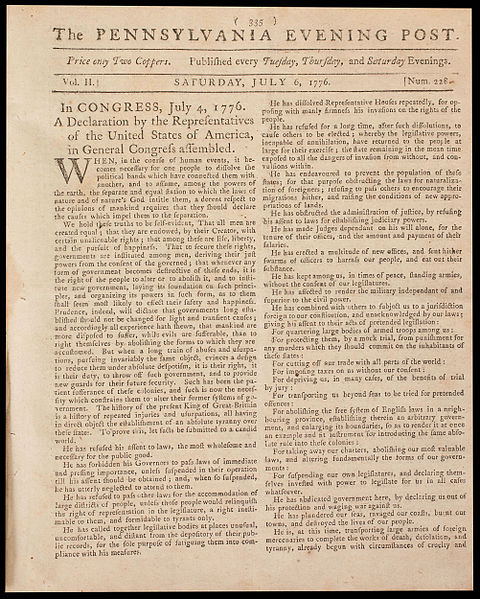Gazette of the United States
The Gazette of the United States was an early American newspaper, first issued semiweekly in New York on April 15, 1789, but moving the next year to Philadelphia when the nation's capital moved there the next year. It was friendly to the Federalist Party. Its founder, John Fenno, intended it to unify the country under its new government. As the leading Federalist newspaper of its time, it praised the Washington and Adams administrations and their policies. Its Federalist sponsors, chiefly Alexander Hamilton, granted it substantial funding; because some of it was directly from the government, the Gazette is considered to have been semi-official. The influence of the newspaper inspired the creation of the National Gazette and the Philadelphia Aurora, rival newspapers for the Democratic-Republicans.
Philip Freneau was John Fenno's rival newspaper editor.
Early American publishers and printers
Early American publishers and printers played a central role in the social, religious, political and commercial development of the Thirteen Colonies in British America prior to and during the American Revolution and the ensuing American Revolutionary War that established American independence.
A typical printing press of the 18th century. Religious enthusiasm and the great demand for bibles and other religious works is largely what promoted the first printing efforts in the American colonies. Before and during the American Revolution colonial printers were also actively publishing newspapers and pamphlets expressing the strong sentiment against British colonial policy and taxation.
The May 9, 1754 issue of The Pennsylvania Gazette, published in Philadelphia
The Pennsylvania Evening Post was the first newspaper to publish the Declaration of Independence following its unanimous adoption on July 4, 1776, by the Second Continental Congress
In 1939, the United States Postal Service issued a stamp depicting John Day's printing press and commemorating the 300th anniversary of publishing during the colonial era.





